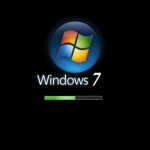
by Michael Roberts | Oct 24, 2010 | Technology

Windows 7
This weekend I had Che install Windows 7. I had to walk him through certain areas, and I sent this to him before hand. It looks like this article helped him out tremendously, so I””m linking to it.
http://stuff.seans.com/2008/11/07/windows-7-install-screenshots/
by Michael Roberts | Aug 4, 2010 | Technology
In a security review of some Windows machines here at work, I ran across a good article about hacking, which included a video on using several good tools to validate security on your publicly facing windows machines, which require RDP (Remote Desktop / Terminal Services) port to be open.
The video shows you how to us tsgrinder, and several other tools. Check out the video here
by Michael Roberts | Jul 29, 2010 | Technology
During my testing and working on something at work, I found some nice variable display info that can be used when trying to debug/troubleshoot some classic ASP code. Stuff I usually can’t find when I need it. So I’m posting it here.
<TABLE BORDER="1"> <TR><TD><B>Server Variable</B></TD><TD><B>Value</B></TD></TR> <% For Each strKey In Request.form %> <TR> <TD><%= strKey %></TD> <TD><%= Request.form(strKey) %></TD> </TR> <% Next %> </TABLE>
Also,
<TABLE BORDER="1"> <TR><TD><B>Server Variable</B></TD><TD><B>Value</B></TD></TR> <% For Each strKey In Request.ServerVariables %> <TR> <TD><%= strKey %></TD> <TD><%= Request.ServerVariables(strKey) %></TD> </TR> <% Next %> </TABLE>

by Michael Roberts | Jul 27, 2010 | Technology
So when I first started using Outlook years ago, I never really liked the default stationery that people used. I’m sure some of you remember how some of these things looked. Like this one…

I hated those. So I was always a ‘text’ guy. As the years went on, I started using a stationery. I think it was Outlook 2000 at the time. So from 2000 to Outlook 2003, and then Outlook 2007, and soon Outlook 2010. I never remember the location of the .html file for the stationary. It seems that a.) is changes with each version b.) I can never find the version information that I need at the time and c.) the directory you put it in is always hidden… thus, I’m putting the location for stationery for Outlook 2007 here so I don’t forget.
%USERPROFILE%\AppData\Roaming\Microsoft\Stationery
There, now I’ll remember.

by Michael Roberts | Jul 16, 2010 | Technology
 Ensure you have the most recent version
Ensure you have the most recent version
Upgrading to the version 3.0 (as of the date of this article) will address many security vulnerabilities, including the protection of your wp-content/plugins directory, and your wp-admin folder. These directories in 2.x versions had security issues and as such were prime targets for attacks. Also be sure to upgrade all of your plug-ins, where applicable. Regardless of how many WordPress sites you may be running, or how hard it may be to upgrade 10’s or 100’s of them, it’s better than having all of their content deleted and thus having to do reinstallations anyway.
(more…)
by Michael Roberts | Jul 15, 2010 | Technology
The below script is a quick PHP script that connects to a mysql database to test connectivity.
<html>
<body>
<?
$host = "xxx.xxx.xxx.xxx";
$username = "username";
$password = "password";
/* Connecting, selecting database */
$conn = mysql_connect($host, $username, $password)
or die("Could not connect");
/* select the database */
mysql_select_db("user") or die("Could not select database <I>user</I> Database<br>");
?>
</body>
</html>


